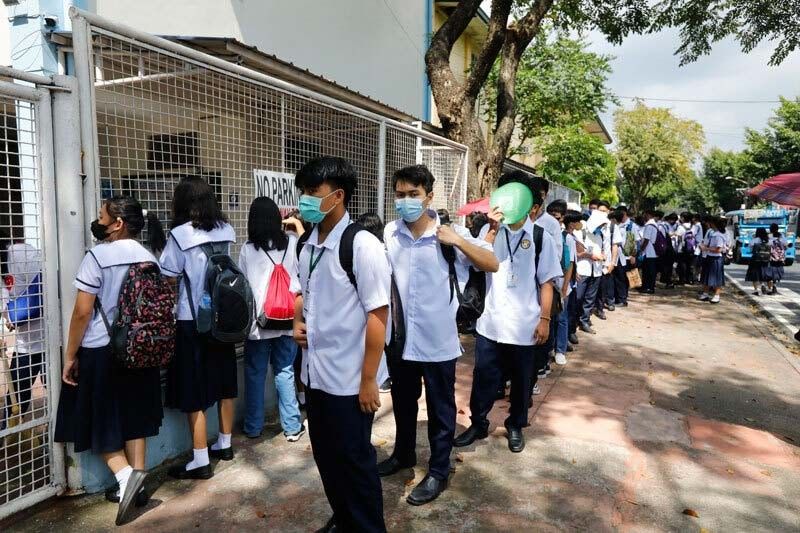DepEd backs making sex education compulsory, standardized

MANILA, Philippines — The Department of Education expressed Tuesday its support for proposals in the Senate to make comprehensive sexuality education (CSE) compulsory in all levels of basic education and standardized in a bid to curb teenage pregnancy.
The DepEd said in its position paper read out before the Senate women and children panel that these bills “will surely help break the persistent taboo on discussing adolescent sexuality and reproductive health and ease the social stigma attached to it.”
It also backed safeguards against non-compliance, which the bills wish to impose by making the provision and delivery of CSE as a criteria for the accreditation of schools.
The department also hailed the bills for seeking to mandate CSE to be “medically-accurate, rights-based, inclusive and non-discriminatory towards LGBT adolescents.”
“It will allow basic education learners to get the right information, gain a better understanding of their rights and reduce discrimination against and even bullying of fellow learners who become pregnant or belong to marginalized groups such as LGBT and Indigenous Peoples,” the DepEd said.
Three bills in the Senate, separately filed by Sens. Risa Hontiveros, Imee Marcos and Ramon Bong Revilla Jr., seek to address the problem of teenage pregnancy in the country, which former President Rodrigo Duterte called a “national priority” in an executive order issued in 2021.
Age and development-appropriate materials
Among the measures against teenage pregnancy that the bills want to be enacted is the inclusion of CSE as a “compulsory part of education, integrated at all levels with the end goal of normalizing discussions about adolescent sexuality and reproductive health and to remove stigma from all levels.”
If passed into law, the DepEd will develop standardized CSE modules which will include age and development appropriate topics such as human sexuality, consent, adolescent reproductive health, effective contraceptive use, disease prevention, HIV/AIDS and other sexually-transmitted infections, digital citizenship and issues like pornography.
“The purpose of which is to equip them with the knowledge, skills and values to make informed and responsible choices about their sexual and social relationships,” read Senate Bills No. 372, 651 and 1209.
Piecemeal implementation
In 2018, the DepEd issued an order on the inclusion of CSE in the Music, Arts, PE and Health, Araling Panlipunan, Edukasyon sa Pagpapakatao, Science and Personal Development subjects.
DepEd director Nenneth Esplana-Alama told the Senate panel that “almost all the schools in the country” are implementing CSE, but they are unsure how exactly it is being taught.
Since CSE is included in other subjects, it is often up to the discretion of teachers in private schools whether they will fully integrate it in classes.
A 2018 study by Center for Health Solutions and Innovation Philippines Inc., which held training sessions for teachers on CSE that same year, found that only 15% of teachers said they have implemented or are currently implementing CSE integration.
Carmela Bondoc, who introduced herself as someone who became a mom at 17, underscored the importance of getting enough information about sexuality so young people like her can properly decide for themselves.
“We believe that if we will be given sufficient and correct information about sex, relationships and the consequences of safe and unsafe sex, how we could avoid diseases, we would be able to decide correctly and responsibly,” Bondoc said. — with Cristina Chi
- Latest
- Trending






























